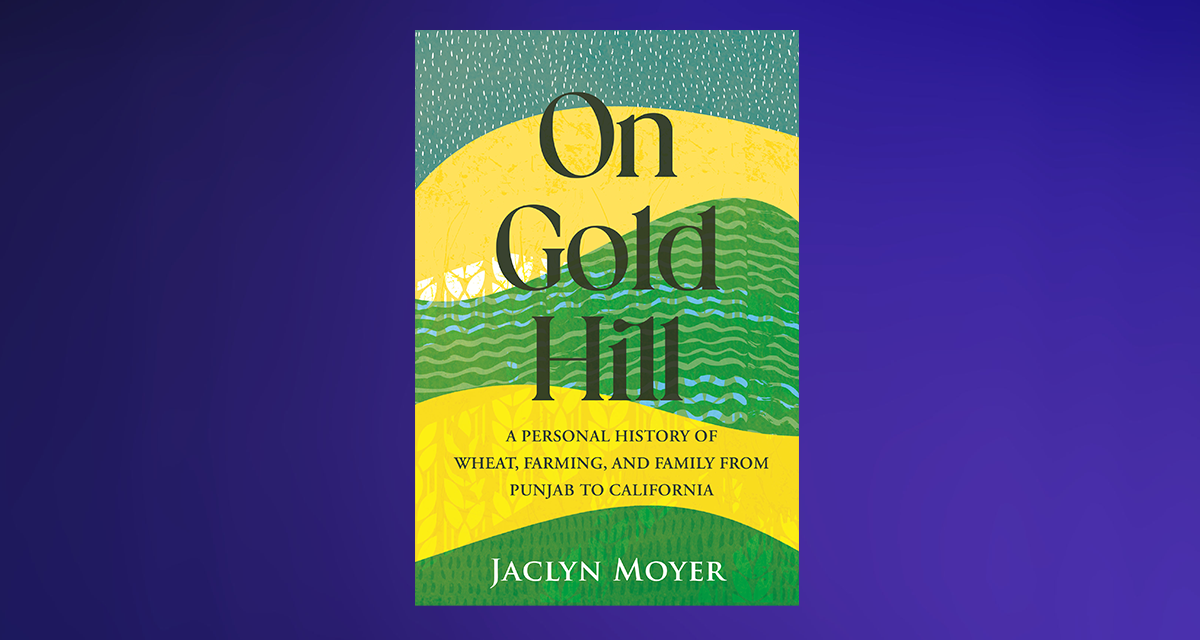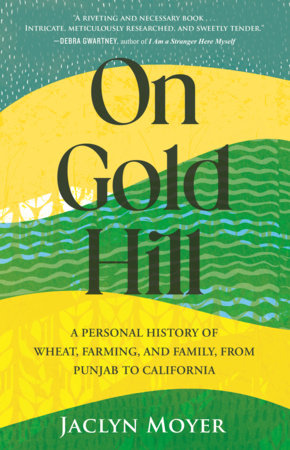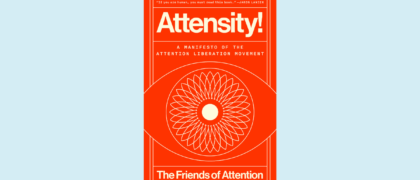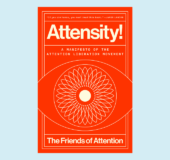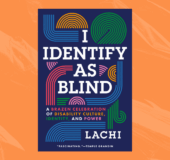In 2012, 25-year-old Jackie Moyer—the daughter of a forbidden marriage between a white American father and a Punjabi American mother—leased 10 acres of land in Gold Hill, California, and embarked on a career in organic farming. With a fractured relationship to her heritage, Moyer saw an opportunity for repair when she learned of a nearly lost heirloom wheat variety called Sonora.
From California to Punjab, the past to the present, Jackie maps her personal story atop the entangled histories of wheat cultivation and the rise of the organic farming movement. With a passion for dismantling the exploitative big-agriculture industry, she examines how the development of high-yielding varieties and chemical fertilizers has harmed our relationship with food, the planet, and each other.
Braiding memoir with historical inquiry, On Gold Hill explores the complexities of the immigrant experience, illuminates the ways colonialism and capitalism constrain our food system, and investigates what it means to lose—and to reclaim—one’s heritage.
PROLOGUE
A Saturday farmers market. Midsummer. Morning. Woven baskets and canvas shopping bags. Nylon canopies flap-flapping in the breeze. The tang of overripe melons and a trace of chill in the air.
I walk with my sister toward the bustle. We’re on the shady side of the street and goose bumps pimple my bare arms. But I know it won’t last, this coolness. I’ve spent enough summers here in these parched Sierra foothills to be sure of that. By the end of the hour, the heat will shoulder in and everything will go sluggish, drawing back from the sun as best it can—birds hunkering in the cover of oaks, rattlesnakes slipping under rocks, squash blossoms crumpling inward. Now, a steady breeze sharpens the chill and I glance at the sunny side of the street where honeyed light pools across the asphalt, then step toward it.
Back when I lived in this region of Northern California and spent my days farming vegetables not far from this town, I’d have stayed in the shade. I’d have let the chill sink deep into my skin, tried to store it there in my flesh, a reserve against the coming heat. In those days, too, I’d have been on the opposite side of the vendor tables. Filling bins, counting change, smiles and thank-yous and recipe suggestions. But it’s been more than three years since I stopped farming: today, I’m just a visitor here.
I’m drifting through the market, enjoying a visitor’s cheerful indifference, when I see the words Gold Hill inked on a banner above a table of vegetables. I know I’ve stopped moving because my sister nudges me, asks, “What?” When I don’t answer she follows my gaze. “Oh, they’re here,” she says. “The farmers who took over your old place.”
I shouldn’t be so surprised. My sister had told me that the latest ten- ants, the third set of eager organic farmers to lease the land since my partner Ryan and I had left it, were from her town.
“Come on,” she says now. “I’ll introduce you.”
The new farmers are as surprised to meet me as I am to meet them. Like Ryan and me when we arrived on Gold Hill, they’re a young couple thrilled for the chance to farm those ten acres of loamy soil. They wear dusty jeans and work boots, hats sweat-stained at the brow. After our introductions, the man resumes stocking produce while the woman and I talk. She tells me of their plans in sentences that bump into each other, the crops they intend to grow, their commitment to creating a more socially just and ecologically resilient food system. Her enthusiasm is contagious, her aspirations familiar. Soon I, too, am talking fast, eager to recall those particular ten acres, the stretch of land I know better than any on earth.
We discuss the intricacies of the irrigation system Ryan and I had designed, the stubborn patch of Bermuda grass by the parking lot. She tells me she’s still getting acquainted with the microclimate of Gold Hill. “It’s a banana belt,” she says and I nod, remembering the way the morning light poured over the fields, how it seemed to gather there in that small basin. I remember, too, that I’d planted sapling fruit trees on that land, trees I knew wouldn’t bear much of a harvest for close to a decade. How I’d hung a swing from the mulberry near the farmhouse and imagined my future children spending long afternoons there.
As we talk I begin to feel a familiar unsettledness rising, some slumbering thing stirring inside me. I look away from the young woman, focus instead on her produce. A smudge of dirt interrupts the smooth shine of an eggplant, and I rub it away with my thumb. More jolts of memory: sticky resin blacking my hands after a morning harvesting tomatoes, the hollow plunk of peppers tossed into a bucket, the scent of irrigation water on sun-warmed soil.
“Where are you living now?” the young woman asks. It’s just small talk but I feel my throat tighten. I answer in a voice as breezy as I can muster, tell her we live in Oregon, it’s very green, lush. No, we’re not farming anymore. Yes, we have a big garden. I go on about our garden, how nice it is to be able to take time with everything, tend to each plant, nothing like working with the kind of ruthless efficiency farming demands. I don’t mention how much I miss stepping into the greenhouse on a winter morning, those tables filled with thousands of seedlings—slender needles of onions, frilled blue broccoli, meaty zucchini cotyledons. Or the fall squash harvest, loading truck bed after truck bed with globes of color. Or the way it had once felt to say those words: I’m an organic farmer.
I begin to look for a way out of this conversation, a way to move my body away from this stall before I smack into the question I imagine she’ll ask next: What happened?
What’s so hard about that question anyway? We’d simply chosen to leave, to let it all go and move on. I’d typed up the letter terminating our lease, sent it in. And yet, there were those tired questions, bubbling up again in my mind: What if we’d only stayed another year, what if I’d been a shrewder businesswoman, a harder worker, a better farmer? Would things have been different? Had I made a mistake, was farming the good life and I’d given it up? Had I chickened out? Gotten out? Sold out? Dropped out? Failed out?
A customer steps up, ready to pay for his bag heaped full of leafy greens. Beautiful produce, he tells the farmer. And it’s true, her display is stunning: all bright colors and broad leaves. She smiles at this compliment, and I watch as she adds up the total. Her hands are callused and strong, dirt staining the creases of her fingers. Her stall buzzes with shoppers. She chats warmly, grins easily. Here, a hardworking organic farmer, diligent and prosperous, doing the good work, bettering the world while living out wholesome, worthwhile days. She plays the part well, I think. Maybe she is the part. I watch her and wonder, Why wasn’t I?
I look down at the pepper in my hands and see it is trembling, so I put it back on the pile, tell myself it doesn’t matter. All that is in the past now. I’d done those years on the farm, nearly four, and lost nothing. Ryan and I had transformed a fallow field, dust and star-thistle, into ten verdant acres, a productive organic farm, and we’d left happily, ready for something new, unscathed.
Another customer approaches the farmer. My hands have stopped shaking, and I’m feeling better, fine. I’ll wave goodbye, mouth “good luck!” and walk away. I turn to do just that, but the woman lifts a finger, wait a minute, and motions for me to come over. She finishes the transaction, steps away from the register, and leans toward me across a heap of squash.
“I wanted to tell you,” she says, “we’ve had a pretty impressive stand of volunteer grain come up this spring.”
“Volunteer grain?” I repeat.
“Along the west edge of the farm, all the way to that back corner near the creek.”
When I don’t respond she adds, “We think it might be wheat.” The back of my neck goes hot. “Oh?”
She waits for me to say more, then prods, “Didn’t you and Ryan grow wheat? There’s that mill stone still in the barn? We heard you were doing some kind of heirloom grain thing?”
I nod. Ignore the heat spreading down my spine. I haven’t talked about our wheat for a few years, have tried to put it out of mind since the day I poured the last handful of flour into a mixing bowl, then stared at the empty ziplock bag dusted faintly yellow. That bag sat on my counter for days before I finally threw it out, the last trace of my wheat clinging to the plastic.
“We tried,” I say, making a sound I hope comes out like a casual chuckle. “It was just an experiment. It didn’t really pan out in the end. Anyway,” I add, “that was years ago.”
“Well,” she says, “we’ve asked around. As far as anyone knows, none of the other farmers grew grains.”
The west edge. That would be the place we’d last planted the wheat. “How tall is it?” I ask.
“Pretty tall, four, five feet maybe.” “Blond?”
“Yes.” “Beardless?”
The woman falters. “I’m not sure,” she says. “I don’t really know much about grains.”
When I arrived on Gold Hill, twenty-five and brimming with ambition, I, too, knew hardly anything about growing grains. Ryan and I hadn’t planned to grow wheat. We intended to grow vegetables—ten acres of certified organic produce. At the time, the “farm” was only a weedy field, thistle and ryegrass. There was an old hay barn and a long-abandoned spring-toothed harrow half buried in the baked earth. There was no irrigation, no greenhouse or tractor. There was no farm stand, no washing stations, not even a stray shovel. All those things Ryan and I would need to build or buy. But we found none of this daunting, only laden with possibility.
It was one afternoon that first summer, a few months into the rush of all the building and planning and gathering, that a baker friend of mine came sauntering up our driveway, a loaf of bread in hand. The loaf, he explained, was made with a grain I’d never heard of: Sonora wheat. The wheat had been grown on a farm not far from my own. “Seems like it would do pretty well here,” he said, fanning out an arm in the direction of our newly leased fields. “Maybe you should plant some.”
I shook my head. “I don’t know anything about growing wheat.” “Well,” my friend said after a moment, “you could look into it.”
Copyright © 2024 by Jaclyn Moyer. All rights reserved. No part of this excerpt may be reproduced or reprinted without permission in writing from the publisher.
Jaclyn Moyer grew up in northern California’s Sierra Foothills. Her nonfiction has appeared in The Atlantic, High Country News, Salon, Guernica, Orion, Ninth Letter, and other publications. She has been a Fishtrap Fellow, a Sozopol Literary Seminars Fellow, and a finalist for the PEN/Fusion Emerging Writers Prize. She has worked as a vegetable farmer, bread baker, teacher, and native seed collector. Moyer lives with her partner and 2 young children in Corvallis, Oregon.

